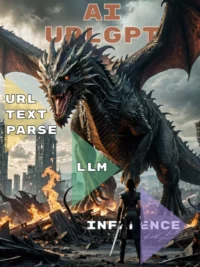- OpenAI says training top AI models without copyrighted data is impossible as copyright covers most human expression.
- The company advocates for fair use permissions to enable model training on public internet materials.
- A New York Times lawsuit alleges OpenAI misused its content to train models.
- OpenAI asserts training on public data is allowed under fair use, enabling AI innovation.
- The dispute highlights tensions between copyright law and AI systems reliant on public data.
Scraping the Barrel: AI Models Built on Copyright Disputes
This clash encapsulates a broader reckoning in the AI field regarding intellectual property protections in the internet age. As models achieve new heights by ingesting vast swathes of digitized culture and commentary, the line between reference and infringement blurs. What was once purely academic research now births lucrative commercial applications, raising the stakes.
For copyright purists, the sheer scale of scraping without remuneration seems an affront, conjuring images of code gorging gluttonously on the fruits of human creativity. Yet from a utilitarian lens, if the outputs return value to society exceeding that displaced from individual creators, denying these models raw sustenance also seems misguided overzealousness. There are reasoned arguments both for more judicious data usage and for broad fair use allowances. Reconciling these positions to enable ethical progress sits at the crux of this issue.
As AI capabilities rapidly scale, we may well look back at this period as a turning point where the tech world evolved to better account for creator rights amid its breakneck learning. But finding that balance requires nuance beyond reactionary assertions of infringement or stagnation. It will likely involve compromise and coalition-building between tech firms, legal experts, and content producers. The outcomes of current disputes will set vital precedents in determining just compensation for source materials that fuel transformative AI.
AI Training Data Controversy Pits Copyright Against Innovation

OpenAI, the developer behind the popular AI chatbot ChatGPT, recently acknowledged in a submission to a UK House of Lords inquiry that creating leading artificial intelligence systems would be practically impossible without utilizing some copyrighted source materials during model training.
This admission comes as AI systems like ChatGPT and image generator DALL-E have faced scrutiny for scraping large volumes of online public domain content without rights holder permission to help train their algorithms. However, as copyright protections now apply to virtually every modern form of human expression, from software code snippets to forum discussions to personal blog posts, avoiding all usage of copyrighted data is an infeasible task.
OpenAI argued that an overzealous copyright avoidance strategy of solely utilizing century-old books no longer under public domain protections would utterly fail to produce AI technologies capable of meeting contemporary societal needs. Instead, the company advocates for embracing fair use permissions that enable aggregating publicly posted internet materials to train state-of-the-art natural language models, viewing this principle as both fair to original creators and vital for maintaining US leadership in AI innovation against rising Chinese competition.
This stance precedes an ongoing lawsuit filed by the New York Times against OpenAI over allegations of unlawfully scraping NYT content for training datasets, which OpenAI firmly denies, stating the overall suit lacks legal merit. At the heart of disagreements is whether existing copyright law wholly prohibits this prevalent AI industry practice of utilizing available online media for model development or if fair use defenses can be invoked to justify such activities as legally permissible. How this question is ultimately settled carries monumental importance for determining the future trajectory of AI progress building upon our vast cultural digital archives.
Two products launched right now:
AI Agent: https://orbitmoonalpha.com/shop/ai-tool-agent/
AI Drawsth: https://orbitmoonalpha.com/shop/ai-tool-drawsth/
Private: AI Tool Agent
One purchase equals 1 yr License. Boost your productivity with our AI tool!
